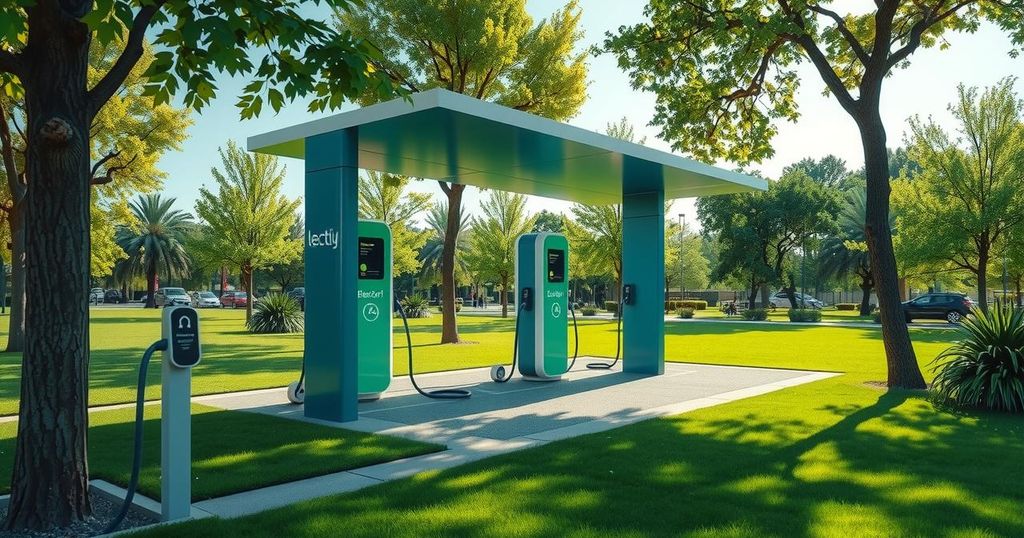Nigeria has inaugurated Africa’s largest electric vehicle charging station in Abuja, aimed at promoting local electric vehicle production and reducing fossil fuel dependence. The initiative, part of the National Automotive Industry Development Plan, seeks to ensure that 30% of vehicles produced are electric, with goals to reach 1 million production units annually and create 200,000 jobs by enhancing local production.
Nigeria has inaugurated Africa’s largest electric vehicle charging station in its capital, Abuja. This significant development aims to enhance domestic electric vehicle production and further reduce reliance on fossil fuels, as reported by DNE Africa, associated with TV BRICS. At the inauguration, domestically produced electric buses and taxis were also introduced, highlighting the government’s initiative to lower emissions and modernize the automotive industry.
The Minister of State for Industry, Trade and Investment, John Uwan-Enoh, stated the nation’s objective of ensuring that 30% of all vehicles manufactured in Nigeria will be electric. This initiative aligns with the National Automotive Industry Development Plan, which aims to elevate car production to 1 million units annually, increase local production share to 40%, and create 200,000 new jobs.
However, government officials have recognized that a transition to electric vehicles necessitates further investments in renewable energy sources and the expansion of charging station infrastructure. This project represents a critical step in Nigeria’s broader efforts toward sustainable transportation and environmental improvement.
The establishment of Africa’s largest electric vehicle charging station in Abuja marks a pivotal moment for Nigeria’s automotive industry. By promoting local electric vehicle production and aligning with the National Automotive Industry Development Plan, the country aims to significantly reduce its carbon footprint while stimulating economic growth and job creation. Moreover, addressing the need for infrastructure and investment in renewable energy is essential for the successful transition to electric vehicles in Nigeria.
Original Source: tvbrics.com




